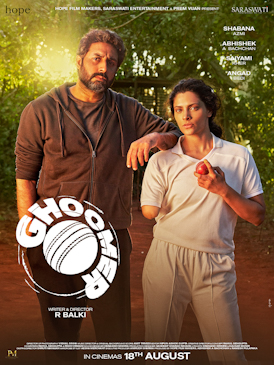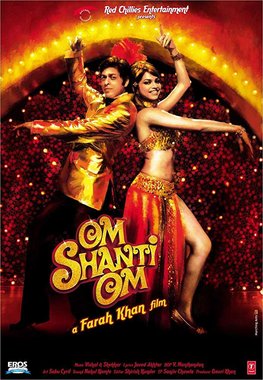Shabana Azmi is an Indian actress of film, television and theatre. Her career in the Hindi film industry has spanned over 160 films, mostly within independent and neorealist parallel cinema, though her work extended to mainstream films as well as a number of international projects. One of India's most acclaimed actresses, Azmi is known for her portrayals of distinctive, often unconventional female characters across several genres. She has won a record of five National Film Awards for Best Actress, in addition to six Filmfare Awards and several international accolades. The Government of India honoured her with the Padma Shri in 1998 and the Padma Bhushan in 2012.
Azmi was born into a family, in Hyderabad, India. Her parents are Kaifi Azmi (an Indian poet) and Shaukat Azmi (a veteran Indian People's Theatre Association stage actress), both of whom were members of the Communist Party of India. Her brother, Baba Azmi, is a cinematographer, and her sister-in-law, Tanvi Azmi, is also an actress. Azmi was named at the age of eleven by Ali Sardar Jafri. Her parents used to call her Munni. Baba Azmi was named by Prof. Masood Siddiqui as Ahmer Azmi. Her parents had an active social life, and their home was always thriving with people and activities of the communist party. It was not unusual for her to wake up in the morning and find members of the communist party sleeping about, from a previous night's communist social that ran late. Early in childhood, the environment in her home inculcated into her a respect for family ties, social and human values; and her parents always supported her to develop a passion for intellectual stimulation and growth.
Azmi attended Queen Mary School, Mumbai. She completed a graduate degree in Psychology from St. Xavier's College, Mumbai, and followed it with a course in acting at the Film and Television Institute of India (FTII), Pune. She explained the reason she decided to attend the film institute, saying: "I had the privilege of watching Jaya Bhaduri in a (Diploma) film, Suman, and I was completely enchanted by her performance because it was unlike the other performances I had seen. I really marvelled at that and said, 'My god, if by going to the Film Institute I can achieve that, that's what I want to do.'" Azmi eventually topped the list of successful candidates of 1972.Azmi graduated from the FTII in 1973 and signed on to Khwaja Ahmad Abbas' Faasla and began work on Kanti Lal Rathod's Parinay as well. Her first release, however, was Shyam Benegal's directorial debut Ankur (1974). Belonging to the art-house genre of neo-realistic films, Ankur is based on a true story which occurred in Hyderabad. Azmi played Lakshmi, a married servant and villager who drifts into an affair with a college student who visits the countryside. Azmi was not the original choice for the film, and several leading actresses of that time refused to do it. The film went on to become a major critical success, and Azmi won her first National Film Award for Best Actress and her first nomination for the Filmfare Award for Best Actress for her performance. Qurratulain Hyder wrote that Azmi lives her role and acts like a seasoned dramatic actress in her first film.
She went on to receive the National Film Award for Best Actress consecutively for three years from 1983 to 1985 for her roles in Arth, Khandhar and Paar. Godmother (1999) earned her a record-setting fifth National Film Award, taking her tally to five. Azmi's acting has been characterised by a real-life depiction of the roles played by her. In Mandi (1983), she acted as a madam of a whorehouse. For this role, she put on weight and even chewed betel. Real-life portrayals continued in almost all her films. These included the role of a woman named Jamini resigned to her destiny in Khandhar and a typical urban Indian wife, mother and homemaker in Masoom (1983).
She mainly acted in experimental and parallel Indian cinema. Deepa Mehta's Fire (1996) depicts her as a lonely woman, Radha, in love with her sister-in-law. The on-screen depiction of lesbianism (perhaps the first in Indian cinema) drew severe protests and threats from many social groups as well as by the Indian authorities. Her role as Radha brought her international recognition with the Silver Hugo Award for Best Actress at the 32nd Chicago Film Festival and Jury Award for Best Actress at Outfest, Los Angeles. She was the initial choice for Deepa Mehta's Water (2005), which was planned to hit the floors in 2000. A few scenes were already shot. Azmi had to shave her head with Nandita Das to portray the character of Shakuntala. However, due to political reasons, the film was shelved and later shot in 2005 with Seema Biswas replacing Azmi.
Some of her notable films are Shyam Benegal's Nishant (1975), Junoon (1978), Susman (1978), and Antarnaad (1992); Satyajit Ray's Shatranj Ke Khilari (The Chess Players); Mrinal Sen's Khandhar, Genesis, Ek Din Achanak; Saeed Mirza's Albert Pinto Ko Gussa Kyon Aata Hai; Sai Paranjpye's Sparsh and Disha; Gautam Ghose's Paar; Aparna Sen's Picnic and Sati; Mahesh Bhatt's Arth; and Vinay Shukla's Godmother. Her other films include the commercially successful Manmohan Desai's Amar Akbar Anthony and Parvarish and Prakash Mehra's Jwalamukhi. Azmi starred in Hollywood productions such as John Schlesinger's Madame Sousatzka (1988) and Roland Joffe's City of Joy (1992).
Azmi debuted on the small screen in a soap opera titled Anupama. She portrayed a modern Indian woman who, while endorsing traditional Indian ethos and values, negotiated more freedom for herself. She has participated in many stage plays: notable among them include M. S. Sathyu's Safed Kundali (1980), based on The Caucasian Chalk Circle; and Feroz Abbas Khan's Tumhari Amrita with actor Farooq Sheikh, which ran for five years. She toured Singapore on an assignment with the Singapore Repertory Theatre Company, acting in Ingmar Bergman's adaptation of Ibsen's A Doll's House, which was directed by Rey Buono. She toured the UK, Dubai and India with British production Happy Birthday Sunita by Theatre Company RIFCO Arts in 2014. Pointing out the differences in all these media, she once remarked that theatre was really the actor's medium; the stage was the actor's space; cinema was the director's medium; and television was a writer's medium.
| Date of Birth | 18th September 1950 |
|---|---|
| Age | 74 Years |
| Zodiac Sign | Virgo |
| Country | India |
| Current City | Azamgarh |
| Birth Place | Azamgarh |
| Religion | Islam |
| Nationality | India |
| Citizenship | India |
| Language | Hindi, |
| Reference | IMDB |
| Spouses | Javed Akhtar |
|---|
| Education |
|---|
| St. Xavier's College, Mumbai, Film and Television Institute of India, University of Mumbai, Queen Mary School, Mumbai |
| Instruments | voice |
|---|---|
| Occupation | film actor, stage actor, singer, public figure, politician, actor |
| Awards |
|---|
|

















